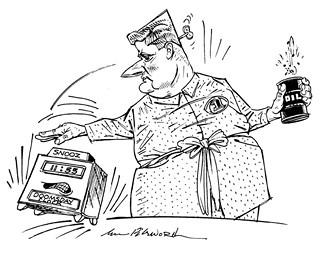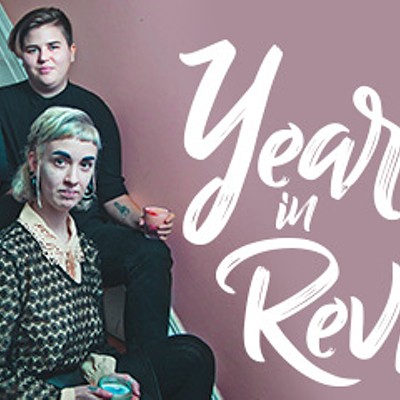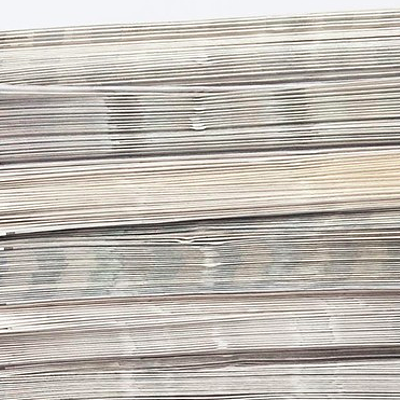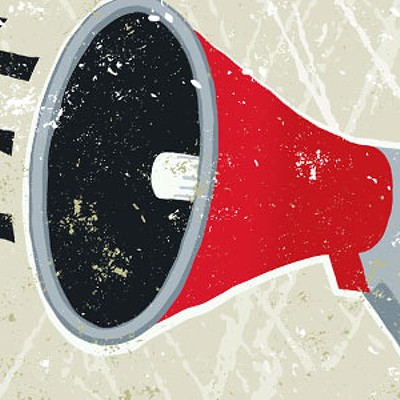Let’s say that the twin towers of climate change are global warming and global dimming. By now, everyone’s heard of global warming, twin tower number one. Experts have been warning for decades that unless we kick our addiction to burning fossil fuels that emit greenhouse gases, rising temperatures will generate more intense hurricanes, tornadoes, ice storms and heat waves. As the polar ice caps melt, they predict, rising sea levels will flood the homes of tens of millions, while massive droughts condemn millions more to starvation. Global warming could also increase the range of deadly diseases such as malaria, cholera and yellow fever.
Suddenly, the dire warnings seem to have sunk in. Worried do-gooders are urging people to turn down their thermostats and pedal their bikes to the mall. Rock-ribbed Neanderthals like George Butch and his Canadian pal Steve have unconvincingly hitched their political wagons to the global warming star. Just as 50 years ago, people worried about the real (and continuing) threat of nuclear annihilation, today’s disaster du jour is global warming.
Well then, what about global dimming, twin tower number two? The BBC science program Horizon presented an in-depth look at global dimming in December. “This is a film that demands action,” the narrator begins. “It reveals that we may have grossly underestimated the speed at which our climate is changing. At its heart is a deadly new phenomenon.” That new phenomenon, global dimming, “may already have led to the starvation of millions.” The program explains that global dimming seems to be caused by air pollution—tiny airborne particles of soot, ash and other compounds that reflect sunlight back into space. Some of the particles cause extra water droplets to form in clouds that deflect even more sunlight. That explains why scientific measurements show that the sunshine reaching the earth’s surface has fallen an average of four to eight percent since the 1950s.
The BBC program explains that global dimming may be disrupting rainfall patterns by shielding ocean surfaces from the full power of the sun. Dimming may already have caused widespread drought and famine in sub-Saharan Africa. And some scientists fear it may now be disrupting the Asian monsoons that billions depend on. Ironically, global dimming may have slowed the pace of global warming, but that’s not really good news. The BBC film explains that as we cut air pollution, the earth will receive more sunlight, and temperatures could rise twice as fast as predicted. Scientists worry that if the climate warms by more than two degrees, the effect would be irreversible—northern ice sheets will melt uncontrollably, causing world-wide flooding, while tropical rainforests burn in the heat. Worse yet, thawing Arctic tundra could release massive amounts of stored methane and carbon dioxide intensifying the greenhouse effect and raising global temperatures even faster.
No wonder, then, that last month, the Bulletin of Atomic Scientists advanced the Doomsday Clock a full two minutes. The hands now stand at five minutes to midnight. The scientists cited “the catastrophic harm from climate change” as well as “the increasing dangers from the spread of nuclear weapons in a world of violent conflict.” Little has been done to end the nuclear threat in half a century, a record of inaction that bodes ill for doing anything decisive about the twin towers of climate change. Those towers symbolize the relentless pursuit of economic growth, mindless consumption and endless war. Turning down the thermostat might help a bit. But we need political action too—voting out Tory and Liberal politicians who coddle big oil companies and arms makers, and giving the NDP and Greens a chance. Since rich countries like ours contribute most to climate change and war while third world countries suffer most, the enduring answer to environmental catastrophe and militarism is peace and global justice. That means fair trade and more aid for them; fewer cars, planes, guns and fossil-fuel-burning power plants for us.
Brighten our day. Email: [email protected]
















